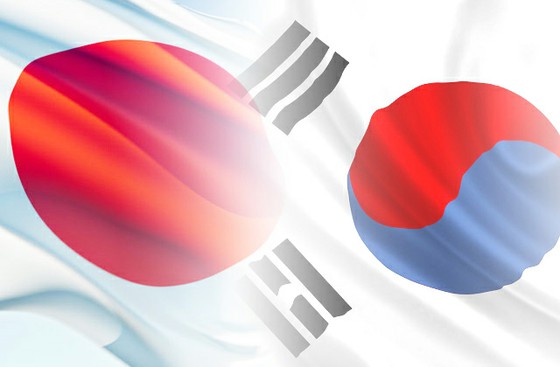 |
In July 2019, the Shinzo Abe administration implemented stricter export controls on three items of semiconductor materials bound for South Korea, and in August of the same year, amended a government ordinance to exclude South Korea from "Group A," which applies preferential treatment to export controls. Cabinet decided. In October 2018, the South Korean Supreme Court issued a ruling in October 2018, ordering Japanese companies to pay compensation in the former forced labor lawsuit, which is the biggest pending issue between Japan and South Korea. "It is a discriminatory measure aimed at South Korea with a political motive related to the former forced labor ruling" they said. In September of the same year, it filed a lawsuit with the WTO, arguing that Japan's measures were unfair. South Korea has requested the WTO to establish a dispute settlement subcommittee (panel), which serves as the "first instance" of the trial, and has continued discussions with Japan regarding the composition of the panel.
South Korea also tried to promote the domestic production of semiconductor materials, for which Japan has applied export controls. After that, there were reports from the South Korean media that "the degree of dependence on Japan has decreased", but the amount of related imports from Japan, which had decreased at one time, turned to increase, and it is said that the movement of domestic production has stalled. was also pointed out.
In August 2019, in a nationwide telephone poll conducted by Kyodo News, 68.1% of respondents said they "appreciated" the Japanese government's response, far exceeding the 20.1% who said they "do not appreciate." At the time, there were growing doubts about South Korea's export controls on strategic materials that could be diverted to weapons of mass destruction in Japan, and many Japanese believed that strengthening export controls to South Korea was appropriate. On the other hand, the survey also asked about the future of Japan-South Korea relations, and 62.4% answered that they were "concerned," surpassing the 32.4% that were "not concerned."
As feared, the boycott of Japanese products, which began with the purpose of protesting the tightening of export controls to South Korea, gradually intensified, and anti-Japanese sentiment increased. Under the name of "No Japan Campaign," the boycott campaign spread across South Korea under the slogan "Don't buy, don't sell, don't go." As a result of the boycott movement, Japanese brands of beer and other beverages temporarily disappeared from shelves at convenience stores and other places, and Japanese brand stores saw fewer customers. Some companies have been forced to withdraw from the South Korean market, including fast brand GU under the umbrella of the major apparel group Fast Retailing, cosmetics giant Shu Uemura under the umbrella of French L'Oréal, and cosmetics mail-order giant DHC.
However, the series of boycotts was teased as a "selective boycott." In 2020, Nintendo's game machine "Nintendo Switch" popular software "Atsume Animal Crossing" will be a big hit in Korea. A large number of people were seen lining up at the store from the day before the release date. If there is no substitute Korean product, even if it is made in Japan, they will jump on it. There were also voices pointing out.
In addition, the boycott led to a decrease in investment from Japan and fewer companies entering the country, which had a negative impact on employment in South Korea.
After that, with the corona disaster as an opportunity, the boycott movement gradually subsided, and sales of each of the hit Japanese products began to recover.
The move to return both Japan and South Korea to the situation before July 2019, when Japan strengthened its export control over South Korea, was due to the South Korean government announcing a solution to the former forced labor lawsuit on the 6th of this month. I feel like I've made rapid progress. On the 16th, Prime Minister Fumio Kishida and President Yoon Seo-gyul held a Japan-ROK summit meeting, and the two leaders agreed to improve relations. On the same day, the Japanese and South Korean governments announced that Japan would lift its export restrictions and that South Korea would withdraw its WTO complaint.
On the 23rd, South Korea's Ministry of Trade, Industry and Energy announced that it had actually withdrawn the lawsuit. It was withdrawn about three years and six months after the lawsuit was filed.
Regarding South Korea's withdrawal from the WTO, Chief Cabinet Secretary Hirokazu Matsuno said at a press conference on the 24th that he would "welcome" the decision, saying, "We will continue to confirm the effectiveness of South Korea's export control system." Hiroshige Seko, secretary-general of the Liberal Democratic Party's House of Councilors, who was Minister of Economy, Trade and Industry when South Korea filed the WTO lawsuit, said, "It was wrong to file a lawsuit with the WTO in the first place. South Korea took action to correct the mistake." and evaluated.
2023/03/27 13:05 KST


